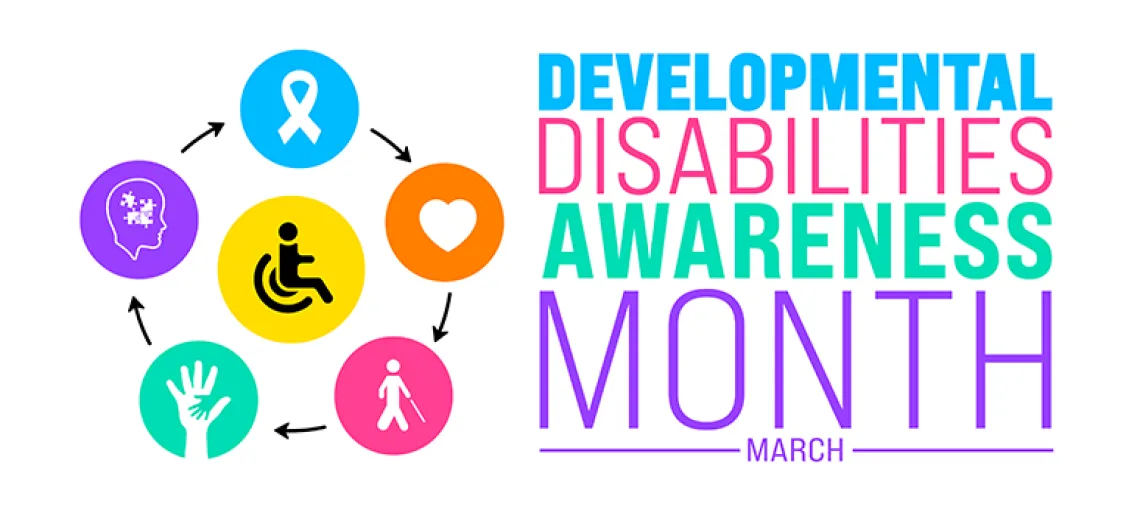Understanding, Supporting and Celebrating Developmental Disabilities Awareness Month

March marks Developmental Disabilities Awareness Month (DDAM), a time to recognize and reflect on the experiences of people with developmental disabilities and their family caregivers. Developmental disabilities encompass a group of conditions that affect physical, learning, language, or behavioral development. These conditions include autism spectrum disorder (ASD), Attention-Deficit/Hyperactivity Disorder (ADHD), Intellectual Disabilities, Learning Disabilities, Cerebral Palsy, Down Syndrome, Epilepsy, Language Disorders, and Sensory Disabilities such as hearing loss and vision impairment.
Disabilities Awareness Month promotes inclusion, equity, and understanding while raising awareness about the barriers faced by individuals with developmental disabilities. It's also an opportunity to celebrate their achievements and potential, acknowledge progress in the field, and strengthen advocacy within caregiving communities.
Our university and community are home to remarkable advocates, innovators, and caregivers who are making significant contributions to this field:
Michele Thorne, a family caregiver and co-founder/executive director of Care 4 the Caregivers, provides valuable insight into the unique challenges faced by individuals with Intellectual/Developmental Disabilities (I/DD). She emphasizes the importance of maintaining a life-work balance, addressing social isolation, and encouraging pride in disability culture and community engagement.
- Dr. Yumi Shirai, an Assistant Professor of Applied Intercultural Arts Research and Family and Community Medicine at the University of Arizona, directs ArtWorks at the Sonoran Center for Excellence in Disabilities (SCEDD). Dr. Shirai also addresses the distinct challenges of lifelong caregiving, including supporting aging adults with developmental disabilities who may develop conditions like Alzheimer's and dementia. Her work emphasizes opportunities for advocacy, knowledge sharing, and building lasting connections within the community.
University of Arizona Resources
- Credible Mind's resources on living with disabilities
SCEDD's programs for developmental disabilities and community engagement, including ArtWorks
The University's Disability Resource Center (DRC) program
Community advocacy and support programs for individuals with developmental disabilities and their caregivers
- AZ Department of Disability Planning Council
- Raising Special Kids
- Ability 360
- Administration of Community Living
- Care 4 the Caregivers
- Parents Helping Parents
- Parent to Parent
- Parents of Adults with Developmental Disabilities and Other Support Needs
- The ARC
- Agencies on Aging
- Facebook/ social media support and affinity groups
- ARCH
- Arizona Caregiver Coalition Arizona Department of Economic Security

